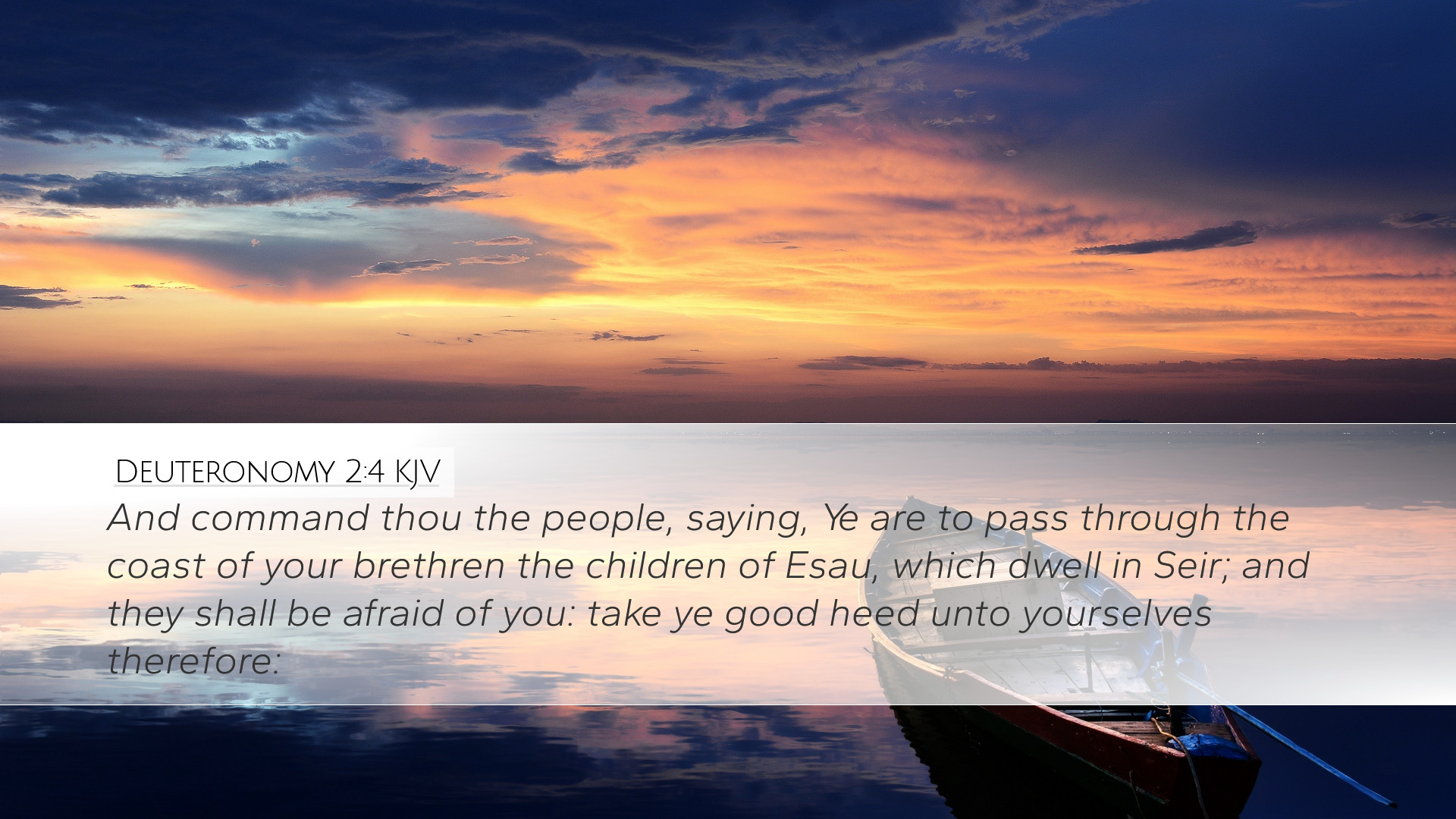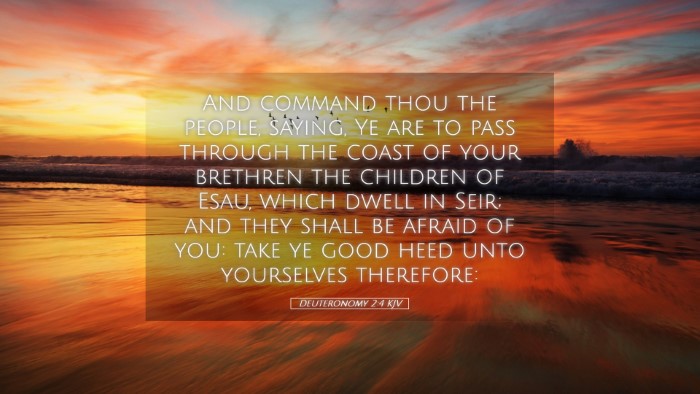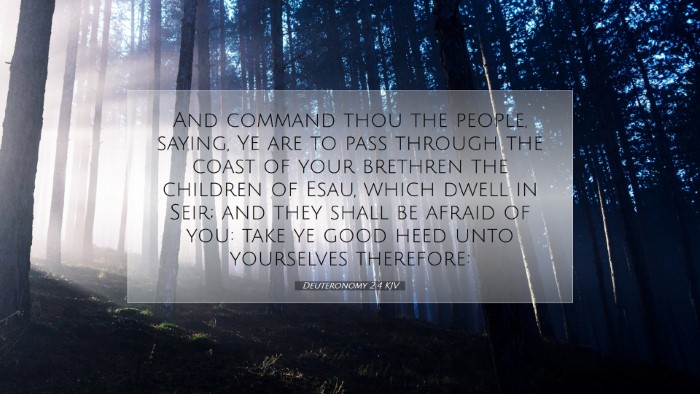Commentary on Deuteronomy 2:4
Bible Verse: "And command thou the people, saying, Ye are to pass through the coast of your brethren the children of Esau, which dwell in Seir; and they shall be afraid of you: take ye good heed unto yourselves therefore:" (Deuteronomy 2:4, KJV)
Overview
Deuteronomy 2:4 is a pivotal verse within the broader context of the Israelites’ journey toward the Promised Land. It conveys God’s instructions to His people regarding their passage through the territory of Edom, inhabited by the descendants of Esau. This instruction highlights themes of respect, caution, and the underlying spiritual truths of obedience and divine guidance.
Contextual Background
Before delving into the specifics of Deuteronomy 2:4, it is essential to understand its context within the larger narrative of Israel's wanderings in the wilderness. The Israelites, having escaped slavery in Egypt and after years of wandering, are on the brink of entering the land promised to them by God. The journey through Edom represents a significant moment not only geographically but also in understanding the relationships between these nations as outlined in the ancestry of the Israelites.
The mention of 'brethren' points to the shared lineage of the Israelites with the Edomites, stemming from Isaac's sons—Jacob and Esau. This connection is significant as it sets the stage for how Israel is to conduct itself amidst their relatives and further reinforces the principle of neighborly respect.
Insights from Commentaries
-
Matthew Henry’s Commentary:
Henry emphasizes the importance of obedience to God’s command. He reflects on how the Israelites were to respect Edom's territory, paralleling their conduct with principles of humility and subservience. The Israelites are reminded of God's authority and their status as His chosen people, which carries both privilege and responsibility.
-
Albert Barnes’ Notes:
Barnes highlights the directive's significance, focusing on the fear that Edom would have towards Israel. He points out that acknowledging the divine favor that rests upon Israel is crucial. The command to exercise caution is a reminder that any encounter with adversaries requires an awareness of God's presence and guidance.
-
Adam Clarke’s Commentary:
Clarke discusses the historical relationships between Israel and Edom, noting that the tension in this relationship necessitated a prudent approach. He comments on the psychological aspect of the Edomites being afraid, reinforcing the idea that God instills fear in the enemies of His people as part of His protection. This fear, coupled with the command to heed oneself, illustrates the need for vigilance even when God assures victory.
Theological Implications
The verse presents several theological implications for contemporary readers. One key theme is the concept of familial obligations and how they apply in spiritual contexts. The call for respect towards Esau's descendants encourages modern believers to engage with others, particularly those with whom they share a heritage, in a way that reflects Christ's love and respect.
Furthermore, the emphasis on caution and awareness serves as a reminder that while God is with His people, they must remain vigilant and attuned to their surroundings. Spiritual warfare often requires believers to be conscious of their actions and the possible effects they may have on their journey and relations with others.
Practical Applications
In applying Deuteronomy 2:4 today, pastors, students, and theologians can consider several practical outcomes:
- Respect for Others: Emphasize the importance of respecting the boundaries and traditions of others, particularly those from different backgrounds or heritages.
- Awareness and Vigilance: Encourage a mindset of prayerful vigilance as believers navigate life’s journey, ensuring that they are attentive to God’s guidance and the impact of their actions.
- Family Connections: Reflect on how faith communities can support one another, bearing in mind the spiritual heritage that ties them as family in Christ.
- Divine Assurance: Teach the assurance found in God's presence, instilling confidence amidst challenges; God’s guidance is the ultimate protection.
Conclusion
Deuteronomy 2:4 serves as a powerful reminder of the intricate web of relationships and responsibilities that believers have in their spiritual journeys. With insights drawn from respected commentaries, we see the scriptural call for respect, caution, and the acknowledgment of God’s overarching authority in our lives. These principles are timeless and continue to resonate with significant relevance for today's believers as they traverse their paths of faith.


